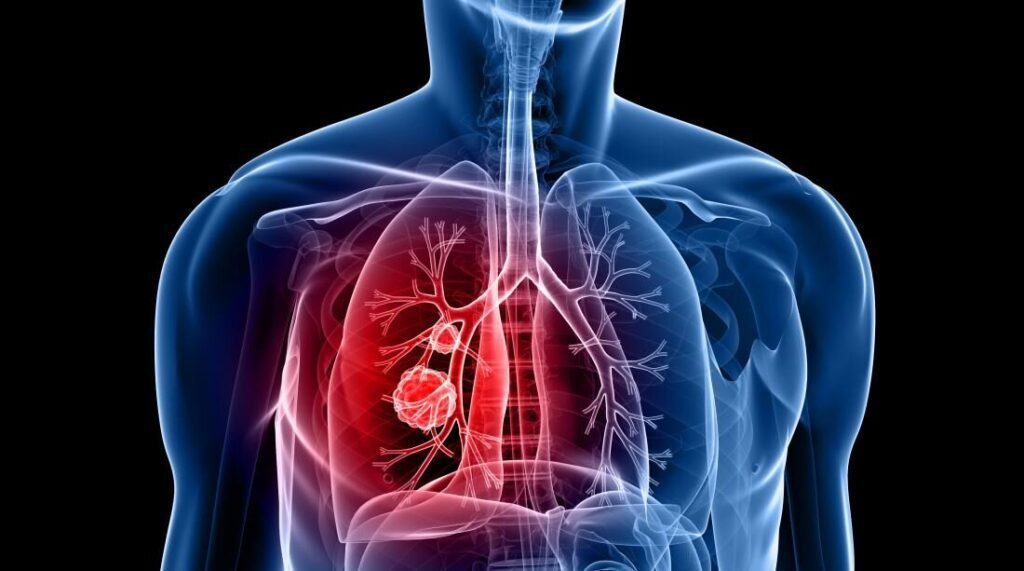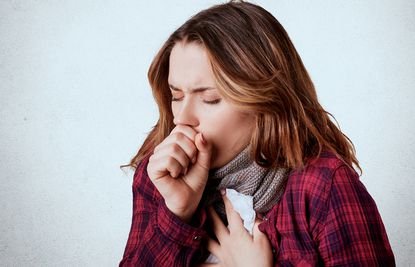Lung Cancer - The Leading Cause of Death in Indonesia

Asia has the highest incidence rate of lung cancer at 59.6% in 2020, according to statistics from the Global Cancer Observatory (GCO). In Indonesia, lung cancer is the third most prevalent type and is the most common kind among Indonesian men, accounting for 22% new cancer cases. Also from the same report, lung cancer is the leading cause of death in the country, comprising 12.6% of the total recorded deaths.
Lung cancer typically starts in the lungs and spreads to the lymph nodes or other body organs, like the brain. However, the lungs may also potentially become infected with cancer that originated from another organ. Metastases are the term for the spread of cancer cells from one organ to another.
Lung cancer is often classified into two types: small cell and non-small cell (including adenocarcinoma and squamous cell carcinoma). These distinct forms of lung cancer develop differently and respond to various therapies. Compared to small cell lung cancer, non-small cell lung cancer is more prevalent.
What Causes Lung Cancer?
The leading cause of lung cancer risk is still smoking tobacco or cigarettes. The World Health Organization (WHO) said that tobacco use is responsible for around 71% of all lung cancer deaths worldwide.
Smoking harms the cells that coat the lungs, which in turn promotes lung cancer. The lung tissue changes practically immediately after inhaling cigarette smoke, which is loaded with cancer-causing agents (carcinogens). Toxic substances present in cigarettes or tobacco products include cyanide, ammonia, butane, and formalin.
Your body might be able to repair this harm initially. However, the healthy cells that lining your lungs suffer increased harm with each subsequent exposure. Damage over time results to abnormal cell behavior, which may eventually lead to the development of cancer.
The risk of developing lung cancer is not only exclusive among active smokers, or those who have smoked at least a pack of cigarettes every day for 30 years. Secondhand smoke exposure puts even non-smokers at risk.
In addition, people with a family history of lung cancer may also be at risk of getting the disease.
Symptoms and Stages
Symptoms may change from person to person. Some people have lung-related problems. Some persons with lung cancer that has metastasized experience symptoms in that area of the body. While some merely experience generic signs of illness. Most lung cancer patients don’t exhibit symptoms until the disease has progressed. Some signs of lung cancer include—
- Coughing that gets worse or doesn’t go away.
- Chest pain.
- Shortness of breath.
- Wheezing.
- Coughing up blood.
- Feeling very tired all the time.
- Weight loss with no known cause.

After a diagnosis of lung cancer, tests are conducted to determine whether it has spread to other body areas or if it has just affected the lungs. This process is called staging. The following stages are used for non-small cell lung cancer:
- Occult or Hidden Stage: The cancer cannot be detected yet by imaging or bronchoscopy but are found on sputum or bronchial washings.
- Stage 0: The tumor is only found in the top layers of cells lining the airways, and it has not spread to other lung tissues.
- Stage 1: The cancer has not yet migrated to the circulation or any lymph nodes and is exclusively present in the lung.
- Stage 2: The cancer has spread to neighboring lymph nodes from the lung and is in this stage.
- Stage 3: The lung, lymph nodes, and center of the chest are all affected by cancer.
- Stage 4: The cancer has spread to both lungs, the fluid surrounding the lungs, and/or other organs or body components, such as the liver.
How Is Lung Cancer Treated?
There are many treatment options depending on the type of lung cancer and how far it has gone. Surgery, chemotherapy, radiation therapy, targeted therapy, or a combination of these treatments may be used to treat non-small cell lung cancer patients. Chemotherapy and radiation therapy are frequently used in the treatment of people with small cell lung cancer.
How Do I Prevent It?
DON’T SMOKE
Don’t start smoking if you have never done so. Educate your kids about not smoking so they would know how to avoid this significant lung cancer risk factor. Talk to them about the risks of smoking while they are young so they will be prepared to handle peer pressure.
QUIT SMOKING
If you are a smoker, the best way to prevent lung cancer is to give up the habit now. No matter how long you have smoked, it is always worth quitting. Your risk of developing major diseases like lung cancer lowers each year you stop smoking and your risk of acquiring lung cancer drops to half that of a smoker after ten years of quitting.
AVOID SECONDHAND SMOKE
If you live or work with someone who smokes, encourage them to quit. Ask them to smoke outside, at the very least. Don’t go to places where people smoke and look for smoke-free places to go instead.
HEALTHY DIET
Studies show that eating a low-fat, high-fiber diet that includes at least 5 servings of fresh fruit and vegetables per day and plenty of wholegrains will reduce your risk of lung cancer, as well as other types of cancer and heart disease.
EXERCISE
Regular exercise has been shown to reduce the chance of acquiring lung cancer and other types of cancer. The average adult should engage in strength training exercises at least twice per week for a total of at least 150 minutes (2 hours and 30 minutes) of moderate-intensity aerobic activity.
References:
Cancer today. (n.d.). Retrieved October 28, 2022, from https://gco.iarc.fr/today/data/factsheets/populations/360-indonesia-fact-sheets.pdf
How Is Lung Cancer Diagnosed and Treated? | CDC. (n.d.). Retrieved October 28, 2022, from https://www.cdc.gov/cancer/lung/basic_info/diagnosis_treatment.htm
Lung cancer – Symptoms and causes. (2022, March 22). Mayo Clinic. https://www.mayoclinic.org/diseases-conditions/lung-cancer/symptoms-causes/syc-20374620
NHS website. (2021, November 18). Prevention. nhs.uk. https://www.nhs.uk/conditions/lung-cancer/prevention/
Non-small Cell Lung Cancer Staging | Stages of Lung Cancer. (n.d.). Retrieved October 28, 2022, from https://www.cancer.org/cancer/lung-cancer/detection-diagnosis-staging/staging-nsclc.html
